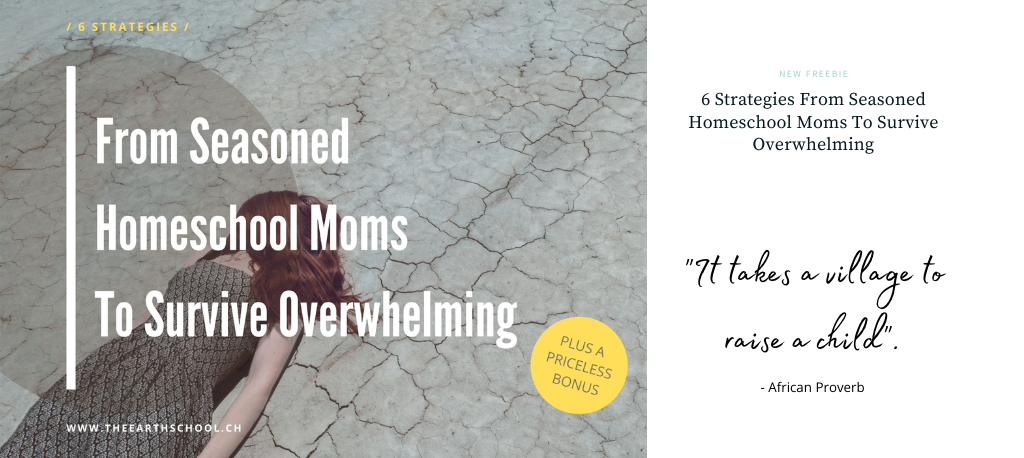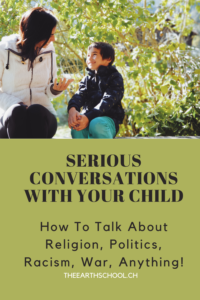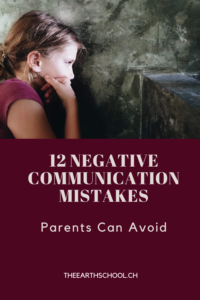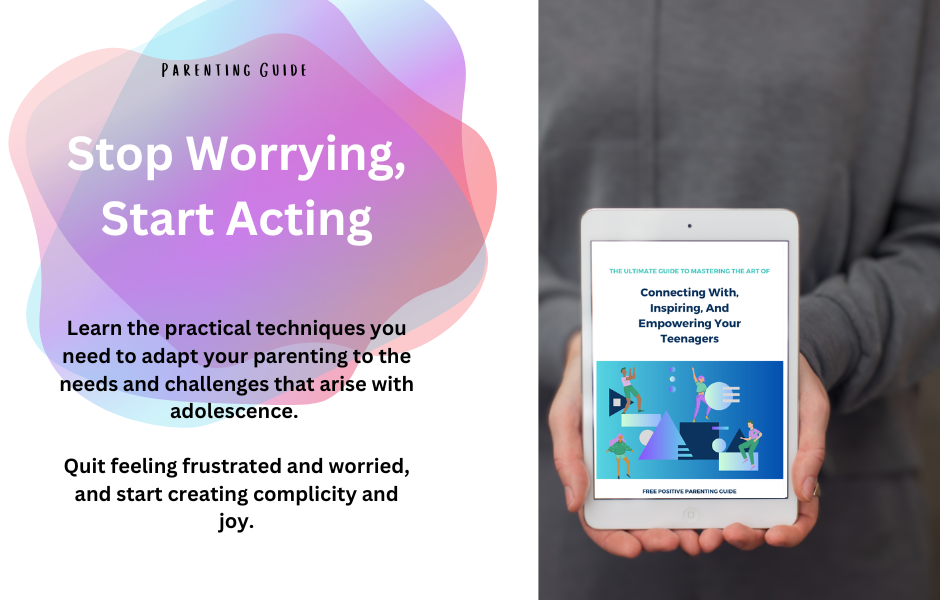
#18 Decision-Making: A Life Skill You Want To Teach Immediately
Don’t like to read? Here you can listen to this article.
How easy is it for you to make choices?
Are you the kind of person who decides without thinking twice, or do you weigh the pros and cons for ages?
Do you listen to your guts or others? Are you able to choose for yourself?
We are facing many choices throughout a typical day. From the clothes we wear, to the house we buy. Our children will be facing the same choices as adults. They already face the same choices as children. So how come we don’t let them practice?
Don’t have time right now? Download the PDF version
Are Your Children Autonomous In Their Decision-Making?
I chose this picture because John Holt, in his book Escape From Childhood, wrote that “children, like anybody, should be allowed to earn money and do whatever they please with it. If my daughter had a bank account, she would buy this very bus and go for a road trip all the way to China to discover giant pandas (her words, not mine).”
 I know that John Holt’s statement can seem unrealistic, or somewhat crazy. Letting children manage a bank account? They wouldn’t know how to do it. They might make ill-considered decisions.
I know that John Holt’s statement can seem unrealistic, or somewhat crazy. Letting children manage a bank account? They wouldn’t know how to do it. They might make ill-considered decisions.
Let’s contemplate that: how much is the consumer debt in America? Not counting mortgages, it is $4 trillion. As for Canadians, they owe $1.77 for every dollar of disposable income they have. Looking at those numbers, it doesn’t look like adults are more reasonable than children with their money.
Maybe the government is better? $23 trillion debt for the US… Ouch!
Looking at those numbers, I’d say children might do a better job at managing the state’s money 🙂
Joke apart, this example was only here to show you what most parents think general: we assume that we know better than children.
Take some time to answer these questions:
- What is the last decision your child made?
- Does your child usually choose their clothes? Their shoes? Their coat?
- Does your child choose when to do their chores? Their homework?
- Does your child choose their snack? Their breakfast drink?
- Did your child have a say in last weekend’s activity?
These are examples of a family’s daily life. You might be quite good at letting your child making decisions already!
There Are Superficial Questions and Deep Questions
I like to think of myself as a mother whose children live with quite some freedom. I let them play outside alone for hours, I don’t intervene in their games and I ask their opinions on our family plans. They have a say in their lives and in their activities. They can choose their food on the menu in a restaurant, and dress the way they want, even when it’s not what I would have chosen. But lately, I have made me wonder how deeply I was letting my children choose.
Here are more questions for you:
- Did your child choose their religion? Their faith? The way they want to live their spirituality?
- Can your child choose to become vegetarian? vegan?
- Can your child refuse to go to someone’s place because they don’t like it there?
- Can your child play with any kid they like without you having a say in it?
- Can your child choose what they want to do with their own money?
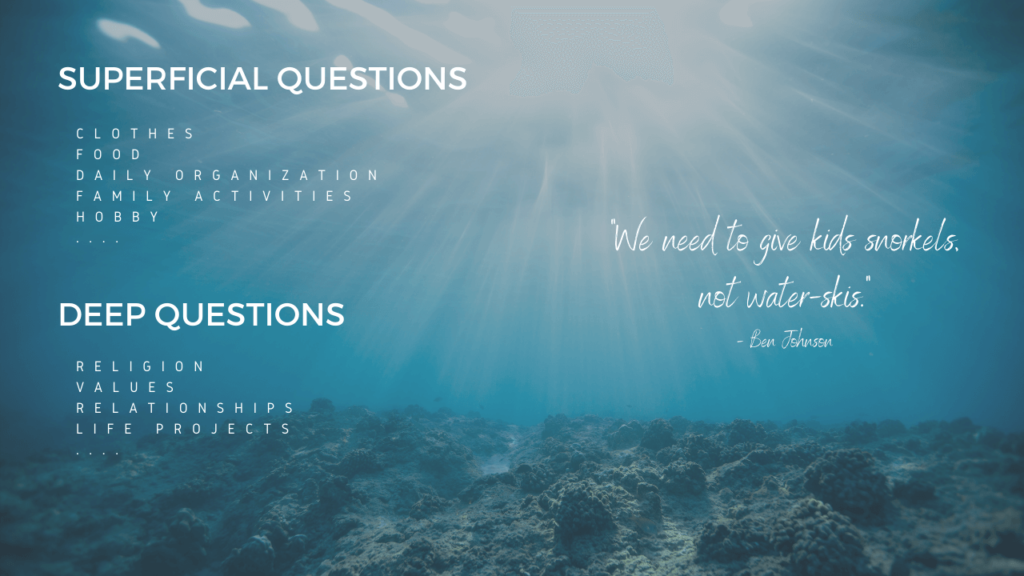
As you can see, we are on a different level here. Those questions are more complicated for parents to deal with because they touch on values. When your child’s choices go against your values, your natural inclination is to fight it.
As I told you, I like to think of myself as a mother whose children live with freedom. And yet, I know that even without speaking, I have my say in their choices.
How We Undermine Our Children’s Decision-Making Skill
As you may know, communication is said to be 7% verbal and 93% non-verbal (body language and tone of voice). In other words, the body cannot lie.
When my daughter buys herself a huge ice cream with her pocket money, I say nothing. Even though I think that refined sugar isn’t healthy and that those ice cream are full of chemicals. Those are my values.
So here I am, not uttering a word, but my daughter takes one look at me and says: “what?” and then “it’s MY money!” in a defensive tone. I didn’t speak, didn’t even roll my eyes. But she read my body language, and she knows me enough to guess what’s bothering me.
This example shows you that it’s not that easy to let your children making decisions. We have instinctive reactions. You know, like when your little one is trying to decide whether they like the blue pants or the green ones better, and after am excruciating long time, you just give him one and tell him to put it on?
[Tweet “#patience is the foothold of #raising good kids”]
It is hard because we are educated with the idea that children know less, are less capable, and need adults to help them decide. This is a problematic idea that is deeply entrenched in us.
It takes time to change a belief. But if you want to change, you will change. And as you could see in my example, I am still working on it too.
Children Don’t Like To Be Helped
A starting point in changing our beliefs on childhood is to understand that children don’t like it when we make decisions for them. Who said they needed help making decisions? Who said our decisions are better than theirs?
No matter the reason, children don’t like to be helped. It is a necessity for humans to learn to do things by themselves. It is a need, not a desire, and children get very frustrated when it is not respected. To help you connect with this feeling, take the last time one of your need was not respected (for instance, you needed silence, some time for yourself, to work, etc…) and remember how you felt (not listened to, not cared for, not considered,…). It was probably not a feeling you enjoyed, was it?
Children like to dress themselves, choose what to eat themselves, carry stuff themselves, and, of course, make decisions for themselves.
When you help a child who didn’t ask for help, you do two things:
-
You slow the process of learning
-
You undermine your child’s dignity
Look at those given situations, and imagine (or remember) how you would react to them. The best would be to write down the answers on a sheet of paper or in a notebook.
Take a minute to close your eyes and breathe deeply. You are back to your childhood. Now listen to those sentences:
- “You are tired, go to bed”.
- “I prepared your clothes for tomorrow, here they are”.
- “Say your prayer before you sleep or the Lord won’t be happy”.
- “Stop being rude and kiss your uncle”.
- “Eat all your plate, some children are hungry”.
What are the feelings you could identify? Anger maybe? Guilt? Disgust? When somebody helps you against your will, it makes you feel powerless. The message that you are sending is: “You are not able to do it, I will do it for you.”
Decision-Making And Self-Esteem
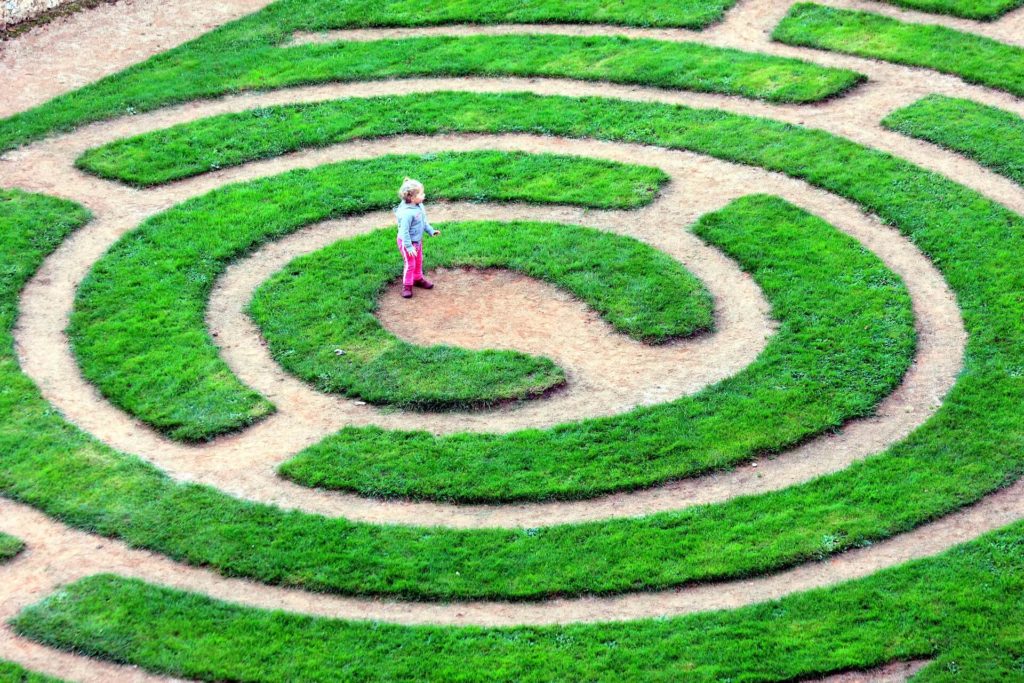
It is well known and proven that DOING is how we learn best as humans. This is why children have a natural inclination to develop their autonomy. Trying and practicing mean there will be mistakes and failures along the road. Thanks to these, children can hopefully correct their mistakes and improve.
Your child might take the wrong decisions for himself. They might decide to go playing outside without a raincoat on a cloudy day and come back home soaked. They might decide to stay in bed instead of preparing their snack and be hungry during school. They might spend all their pocket money on unhealthy ice creams and have to go to the dentist.
Adults are the same. We cannot learn something new overnight. If you want to learn Chinese or crochet, you will have to practice. But, if during your first attempt at crochet, someone jumped and said “I can do it for you, I already know, it will look nicer”, you’re not going to learn crochet.
Here is a little nugget of wisdom for parents who are now considering helping their children less and giving them more room to make their own decisions:
When a child learns that they can make mistakes without getting into trouble, they will not try to hide those mistakes, which means that they are developing with honesty and integrity. They will also discover that they are able to correct their mistake and do better next time.
Isn’t it something you wish you could teach your children?
How Can You Improve Your Child’s Decision-Making Skills?
The great news of the day is that there are endless possibilities to let your child practice decision-making. Just think of ALL the choices you make in one day, one week, one year,…
Before we go into practical situations, I would like to bring your attention to a couple of important points:
1. The idea we have of The Perfect Mother
They are some things we hear like “she would do anything for her children”. There is this belief that the more we love someone, the more we should do for them. As if spreading peanut butter on your child’s toast and buttoning their coat were proof of our love. I urge you to remember how you felt when you pictured yourself as a child and thought of sentences like “you are tired, go to bed”. When you decide for your child what is good for them, you might think that you are telling them that you love them, but they will understand that they are not able to think for themselves, or at least that you, their mother, believe so.
2. The unhealthy obsessions with time
Another reason why we often make decisions for our children is that we are always in a hurry. I have three children, if each chose a different breakfast, they’ll never be made in time (They make their own breakfasts). But, if they take ages for breakfast, it is still their choice. As a consequence, they might be late for school or have no more time to play before their chores. This is where they learn what making decisions means. Maybe the next day they’ll be quick about it or decide on ONE breakfast to prepare together and be done with it. Or, maybe not. Maybe they will be late for a week. Maybe they will end up asking you for help or advice since you have more experience.
Making A Wrong Decision Is Better Than No Decision
As for situations where your child could practice decision-making, I am sure that you already have a few in mind. I am not saying to you should let your child decide everything starting tomorrow morning. We are talking about practice here. If you decide to learn Chinese, your teacher won’t abandon you in the middle of the Chinese countryside and see if you can make it back, will they?
The important thing is that your child starts to make decisions. It doesn’t matter if they are good or bad, and they have to know that. The relevant part is the making of a decision.
“Decisiveness brings light. Even if you decide to remain the same, even that will bring light to you; things will be clear. Even if you decide wrongly, then to decide is good. If you decide rightly it is a great blessing, but if you decide wrongly, then too it is better than the indecisive state of mind.
Decisiveness is always good; man is born through decisiveness. Remaining wavering, doing things half-heartedly, doing and not doing, just going so far and then turning back, is a sheer wastage of energy. And if you remain This way too long, it becomes your habit. Then it becomes a deep root in your mind: again and again you do the same thing and the root goes deeper and deeper and deeper. Stop it!”
OSHO – Darshan Diaries, The Further Shore, Chapter 15
A good start, if your child doesn’t do it already, is to let them choose their own clothes. This is an important ritual for all of us. We wake up, we reflect on our mood, on what today will bring, and choose our clothes accordingly. When I started dating my husband, he was twenty. His mother was still choosing and buying his clothes for him. It’s been twenty years and he still asks for help when he has to buy new clothes. You don’t want that for your children, do you?
Another daily decision: food! I’m not saying your child should choose the menu (except if they are willing to cook of course) because you might have 7 children and that would end up in a fight. But a child can decide how much food they wants on their plate. If they are very young you can start with small decisions like the quantity of juice they want in their glass. Maybe your child could decide if they’d rather have tomato or cucumber salad. It might seem like tiny things but remember: it’s all about learning decision-making.
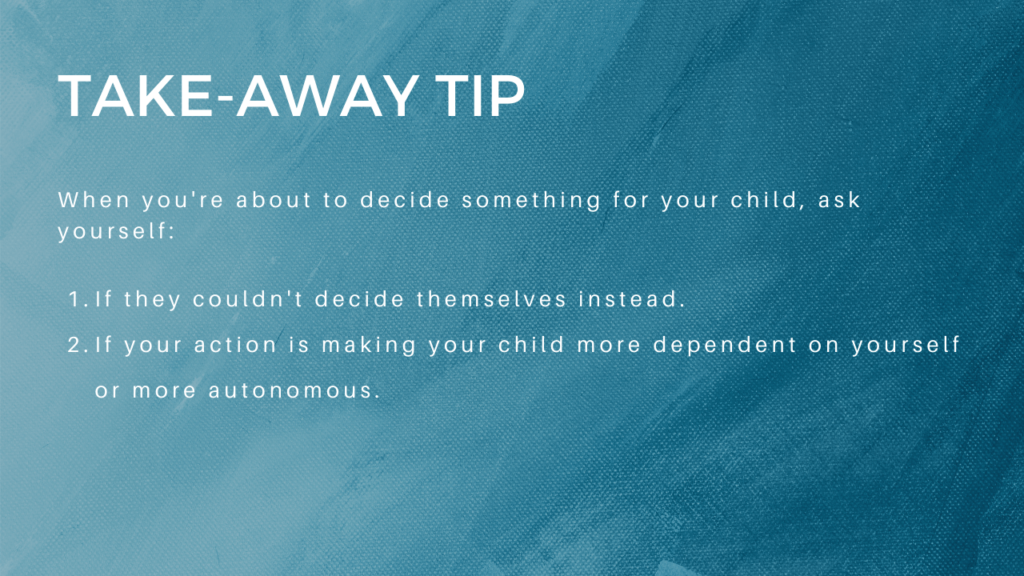
Maybe at first, you’ll only think of it a couple of times a day. But, little by little, you will start to see changes.
Your mental load will lighten because you won’t have to think for others. Your children will learn to make decisions, and the benefit of that is that they will learn to take responsibilities. They will become more autonomous.
You would like those activities (and more) conveniently in one place? Download our Cheat Sheet!
From small daily choices, you will see that your children will start to question deeper topics. This will be a chance for you to share and explain your values. Of course, your children will get to choose which ones are theirs in the end. And they will be able to do that if they feel that you love them no matter what.
Understand How Decision-Making Works
It is interesting to see how difficult it can be for some persons to make a decision. Quite often people would rather procrastinate rather than making a choice. It made me wonder, what actually happens in our brain when we have to choose?
[Tweet “#experiences are the true wealth we can offer our #children”]
1. The brain creates options
Our brains dig into our memory and look for similar situations. That helps the brain find potential answers. For example, if you ask a small child if they’d rather have half or a full glass of juice, they will remember that yesterday it was hard to drink the whole glass. What’s important here is the realization that the more experiences you live, the better your capacity to choose. Don’t hesitate to let your children spend time with other adults, as those will unlock potential new options for them to choose, even in familiar situations.
2. The brain chooses one option
No big surprise here. After considering the options in the light of past similar experiences, the brain picks one. To keep our example, that little child might decide to ask for half a glass. You can see here how having a broad horizon gives you a bigger range of choices to choose from.
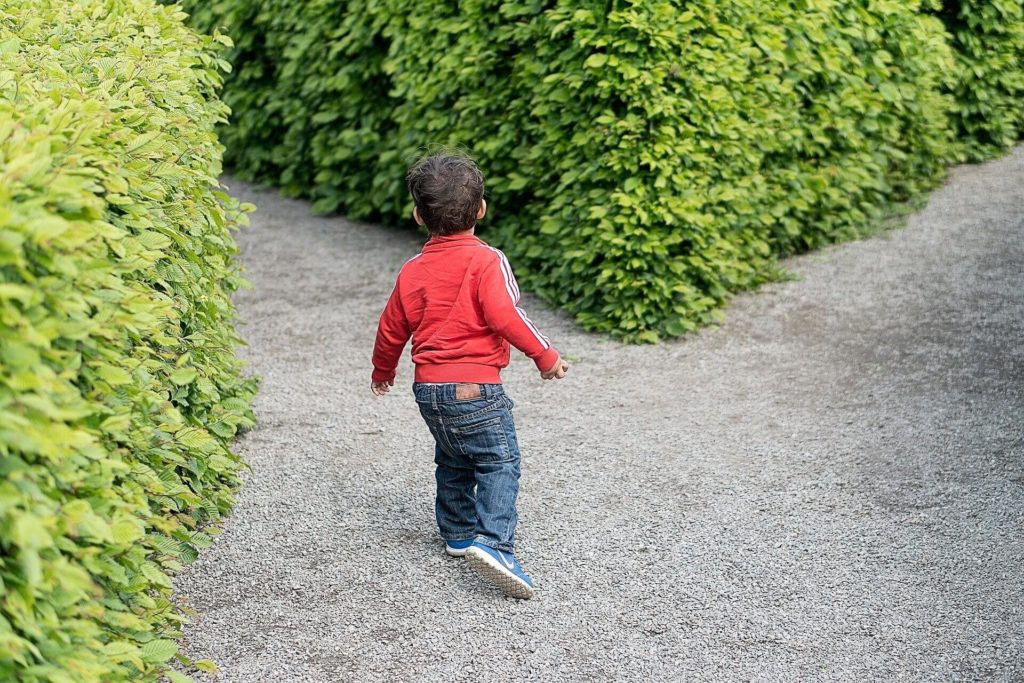
3. The brain tests the possible outcome
Our brain is very smart and careful. It is not going to go for just one option. First, the brain will project the option and see how it might impact ourselves and others. If the brain’s satisfied, then, the option is validated. This part is tricky because it is there that our fears, guilt, or doubts kick in. Take our little child. Maybe they’re afraid that if they ask for half a glass and yet are still thirsty, they might not get more. At this point, if the fears are too big, the person gets stuck. And the more they get stuck, the fewer experiences they get for their brain in step 1.
This is why deciding is more important than the decision itself. Dare to decide! This is why you should let your child practice and learn. It will serve them all their life.
Remember that our children don’t belong to us, they are free. Free to make their own choices. By respecting our children’s choices, we teach them self-esteem, autonomy, and respect.

Thanks for reading this article! As always, I hope it gave you some line of thoughts to explore as well as ideas to act and create a positive change in your life.
Don’t let the inspiration fades and take action right away:
1. Download our cheat-sheet, it’s on the house
2. Decide on the one action you will implement today and write it down
3. Share this article with 3 friends who could benefit from it
4. Save the article in your favorites
I wish you all the best with your kids, always remember that we all do the best we can at a given moment and don’t judge yourself harshly. Be confident and listen to your intuition. If what you do comes from a place of love, then you’re on the right path.
See you next week for another exciting article!
Other Blog Posts You Might Be Interested In
Don’t Forget To Join Our Community To Get Inspiration And Tips Straight in Your Mailbox
I wish you all the best with your kids. Always remember — we’re all doing the best we can in any given moment, so try not to judge yourself too harshly. Be confident and listen to your intuition. If what you do comes from a place of love, then you’re already on the right path.

If this post resonated with you — if you’ve ever walked ten paces behind your child, wondering if you’re ruining everything — come join us on Instagram.
It’s where I share reminders, reflections, and the odd parenting confession… for mums figuring it out one heart-twinge at a time.




